




 |
 |
 |
 |
 |
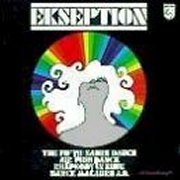 |
Ekseption (1969, 32.40) ***/T |
|
| The 5th Dharma Little X Plus Sabre Dance Air Ritual Firedance Rhapsody in Blue This Here |
Dance Macabre Opus 40 Canvas |
|
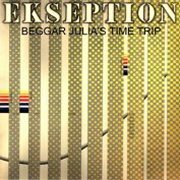 |
Beggar Julia's Time Trip (1970, 34.40) ***½/T |
|
| Ouverture Prologue Julia Flying Power Adagio Space I Italian Concerto Concerto |
Space II Pop Giant Space III Feelings Epilogue Finale (a) Music for Mind (b) Theme Julia |
|
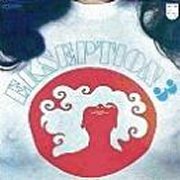 |
Ekseption 3 (1971, 36.13) ***½/½ |
|
| Peace Planet B 612 Morning Rose Piece for Symphonic and Rock Group in A Minor a) Part one: Passacaglia b) Part two: Painting The Lamplighter Bottle Mind On Sunday They Will Kill the World |
Another History Rondo |
|
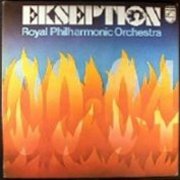 |
00:04 (1971, 37.07) ****/TAve MariaBody Party Monlope Monkey Dance Choral Partita No. 2 in C Minor Piccadilly Sweet |
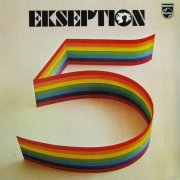 |
5 (1972, 43.17) ***½/T |
|
| Introduction Siciliano Vivace For Example/for Sure Virginal A la Turka Midbar Session Pie |
My Son Finale |
|
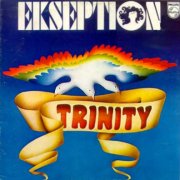 |
Trinity (1973, 41.06) ***½/TT |
|
| Toccata The Peruvian Flute Dreams Smile Lonely Chase Romance Improvisation Meddle |
Flight of the Bumble Bee Finale III |
|
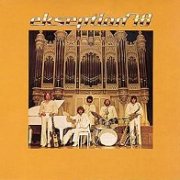 |
Ekseption '78 (1978, 39.18) ***/T |
|
| Again Your Home Wild Flower Signal Pearl Thoughts Summertime Nocturne |
Impromptu The Cat Jesu Joy Faith |
|
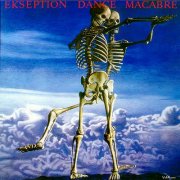 |
Dance Macabre (1981, 39.49) ***/T |
|
| The Fifth Symphony Italian Concerto Air Rhapsody in Blue Peace Planet Sabre Dance Concerto Danse de Feu |
Adagio Dance Macabre Haydn Conchorus |
|
Current availability:
Mellotrons used:
Ekseption were one of the first progressive bands in Holland, although how 'progressive' you consider them to be probably depends on your tolerance for cheesy 'rock' versions of the classics, interspersed with jazz, blues and anything else they felt like throwing into the mix. They were led by über-keys man Rick van der Linden, later of the mighty Trace, who stamped his forceful personality all over their work before his surprise departure after their sixth album, 1973's Trinity, rejoining in 1978, after Trace's demise. In order to facilitate their classical attempts, the band, unusually for a rock outfit, sported a two-piece brass section, the end result, initially at least, sounding slightly like an unholy cross between Procol Harum and James Last. It has to be said that their choices of classical material weren't exactly revolutionary, being largely the kind of mainstream fodder spat out these days by the UK's commercial classical station, Classic FM. No Bartók here, then.
On their 1969 debut, Ekseption, they tackle Beethoven, Bach (told you they were mainstream), Gershwin and, er, Jethro Tull, amongst others. Rick was apparently using the fairly unusual M300 Mellotron on the album, initially confusing me into thinking there was no tape-replay input, but it seems he used it on three tracks: lush strings on Air is, unsurprisingly, their take on Bach's Air On A G String (which will forever be known amongst Brits of a certain age as 'the Hamlet cigar ad music'), with less of the same on This Here and the rarely-heard M300 classical guitar on Ritual Firedance. There's also a real orchestra on Dance Macabre Opus 40 and parts of opener The 5th (guess which Beethoven piece that might be?). More M300 on their follow-up, an odd little concept piece called Beggar Julia's Time Trip, although not to any great extent. The music is an immediate improvement on their debut, far less cheesy and more like a forerunner to Trace in places, proving how much of that band's sound came from reinterpreting Bach. The only particularly overt use is on (Bach's) Italian Concerto, with some M300 strings; while I've highlighted three other tracks, it could be on more, or possibly less. Apart from Italian Concerto, it's all very subdued.
Ekseption 3 starts with some beautiful (Hammond) organ work, which they rather spoil by giving the brass section free rein again. Actually, this is probably a good description of the album as a whole; excellent moments spoiled by cheesiness. I mean, a jazzed-up Hall Of The Mountain King (on Bottle Mind) isn't really necessary, is it? It's by no means a bad album, though, with highlights including Peace Planet (more Bach) and the cumbersomely-named Piece For Symphonic And Rock Group In A Minor. Very little Mellotron, again, with background work on two tracks, leading to the extremely low 'T' rating. 00:04 is a definite improvement, lengthy closer Piccadilly Sweet being by far the most ambitious piece yet tackled by the band, mixing jazz and classical like they were both going out of fashion. Er... Despite the frequent, unwelcome and intrusive brass work, the album was quite clearly Ekseption's fairly successful attempt to up the musical ante and be taken a little more seriously. Van der Linden's Mellotron work is, once again, restricted to background pads by and large, making you wonder exactly why he bothered, but at least we're finally getting somewhere on the musical front.
For some strange reason, although every other instrument Rick plays on '72's 5 is credited, there's no mention of the Mellotron, but it's there all right. Musically, the album is the by-now typical Ekseption sound, 'covering' such obscure composers as Bach, Mozart and Beethoven, not to mention Keith Emerson (who he?), who at least did, to his credit, play fairly unknown composers' works. Several Rick originals this time round, too, although Virginal sounds like one of those classical works you can't quite place, while his half of For Example/For Sure contains fairly pointless excerpts from Norwegian Wood and West Side Story's America. Very little Mellotron again, with background strings on Siciliano and a few string chords on the lengthy Midbar Session; why did he not use it more? Bizarre. '73's Trinity opens with Ekseption's version of that old warhorse, Bach's Toccata And Fugue In D Minor, later reinterpreted by British almost-proggers Sky, before an overlong The Peruvian Flute, Rick using his ARP 2600 to approximate said instrument. The rest of the material does what Ekseption do (or did), without really advancing their cause any. Plenty of Mellotron, for a change (must've read my last paragraph), with strings on every highlighted track above. Best bits are the volume-pedalled chords on Improvisation, at the end of the bass solo (stop squirming at the back) and the interjections on their version of Rimsky-Korsakov's Flight Of The Bumble Bee (makes a change from the usual suspects, anyway), making this easily their most Mellotron-heavy release.
Ekseption made three inexplicably unavailable albums with Rick's replacement, Hans Jansen, after his departure, the really rather good Bingo (****), the apparently excellent Mindmirror and the return-to-earlier-values Back to the Classics, before grinding to a halt. Their reformation album with Rick, having (sadly) got Trace out of his system, was Ekseption '78, sounding not unlike their earlier work, hardly surprisingly. The album doesn't succeed on all fronts, unfortunately, with several poor choices of material, not least an awkward Jesu, Joy Of Man's Desiring, abbreviated to Jesu Joy, the drum part riding roughshod over the piece, and a misplaced funky take on Gershwin's Summertime that sounds next to nothing like any other version you've heard. Nocturne (yup, Bach again) works very well, however and closer Faith is a reworking of Doubts from the final Trace album, The White Ladies, but overall, we're treading over old ground here. Very little Mellotron (yet again), with choirs on Again and Pearl (Bach and Händel respectively), although there's quite a bit of Yamaha's late-'70s mega-synth, the GX-1, too. Don't search too hard for this, although the pompous sleevenotes are almost worth a purchase on their own...
The last Ekseption album for some years was Dance Macabre in '81, consisting of re-recordings of tracks from previous albums, for some unknown reason (copyright issues?). It's... well, it's another Ekseption album, doing the same thing as all other Ekseption albums, only in this case, you've heard it all before, bar Rick's closing composition Conchorus. A couple of bursts of Mellotron choir, on Concerto, Haydn and way in the background on Conchorus, but nothing you can't live without, given that this is fairly hard to find these days.
Incidentally, many thanks to Olof Lindh (the man who sold the mighty Änglagård their Mellotron, folks) for his information regarding Rick's Mellotron sounds. Olof notes that Ekseption and Earth & Fire were both recorded at Phonogram studios in the Netherlands, achieving exactly the same Mellotron sounds, making it extremely likely that the M300 was actually the in-house studio machine.
See: Trace | Mistral | Dutch Treat